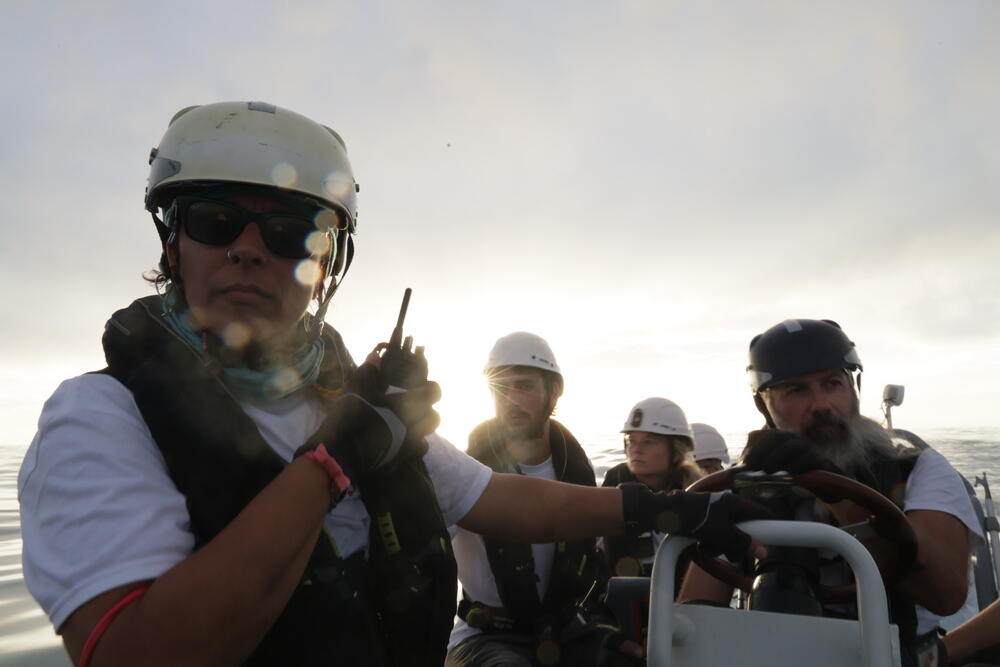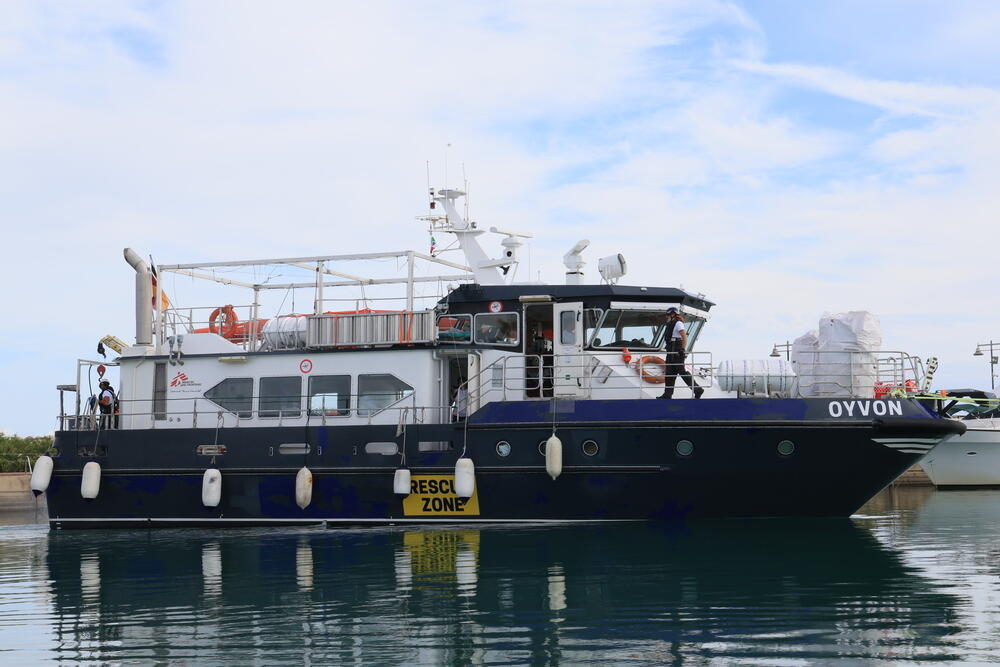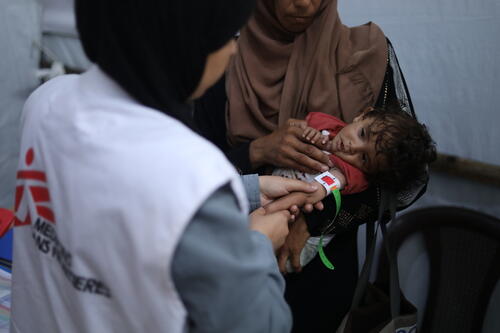MSF relaunches search and rescue operations in the Central Mediterranean
The new MSF vessel, Oyvon, has been refitted and equipped to help save lives on one of the world’s deadliest migration routes.
Médecins Sans Frontières / Doctors Without Borders (MSF) has relaunched its lifesaving search and rescue (SAR) activities in the central Mediterranean, almost a year after being forced to terminate operations with its last rescue vessel, the Geo Barents.
Teams are deploying the new rescue vessel Oyvon, which means “hope for the island” in Norwegian, in one of the world’s deadliest migration routes. Oyvon was previously operated as an ambulance vessel in Norway.
“As a medical and humanitarian organisation, our commitment to being present at sea and supporting people on the move is unwavering,” said Juan Matias Gil, MSF SAR representative.
“We have returned to carry out the duty of rescue for those who find themselves in distress at sea, forced to take unseaworthy boats, after having endured deplorable and inhumane conditions, detention, abuse and extortion in Libya.”
2,658
OUTPATIENT CONSULTATIONS ONBOARD THE GEO BARENTS BY MSF IN 2024
1,692
PEOPLE WHO DIED OR WENT MISSING IN THE CENTRAL MEDITTERANEAN IN 2024
12,675
PEOPLE RESCUED BY MSF BETWEEN JUNE 2021 AND DECEMBER 2024
Restrictive policies made SAR almost impossible
MSF was forced to halt rescue activities of the Geo Barents in December 2024, after more than two years of operating under restrictive Italian laws and policies, particularly the Piantedosi Decree and the distant port practice. This imposes penalties like fines and detention on NGO ships that don't immediately disembark rescued people, while the distant ports policy requires these vessels to travel to ports far from the rescue area, further delaying their return to rescue operations.
These restrictive rules made operating the Geo Barents unfeasible; despite its capacity of up to 700 people, it was routinely directed to distant ports while carrying only around 50 survivors.
“MSF's decision to deploy a smaller, faster vessel is a strategic response to the restrictive and obstructive laws and practice imposed by the Italian government, which specifically targets humanitarian rescue vessels,” adds Gil.
By returning to the Central Mediterranean, MSF also aims to report on and document the experiences of people who flee Libya and collect their accounts of violent interceptions at sea at the hands of the Libyan Coast Guard and other actors, as well as their forced return to Libya recognised as a violation of international maritime, human rights and refugee law by Italian courts and UN bodies.
In recent months, there has been an increase in violent attacks in international waters by the Libyan Coast Guard and other armed groups against people crossing the Mediterranean, as well as against humanitarian rescue vessels.
The MSF crew onboard includes a doctor and a nurse to provide medical care in life-threatening situations and treat people for hypothermia, fuel inhalation, fuel burns, as well as wounds they might have sustained in the cycle of abuse and detention in Libya.
MSF and Mediterranean Search and Rescue
Every year, thousands of people fleeing violence, insecurity, and persecution attempt to cross the Mediterranean Sea. They make this treacherous journey via North Africa and Turkey, in search of relative safety in Europe.
And, every year, countless lives are lost at sea, while people face unimaginable cruelty on their way through transit countries such as Libya.


